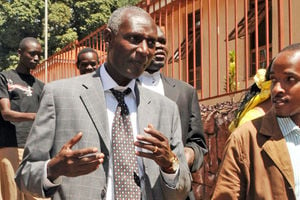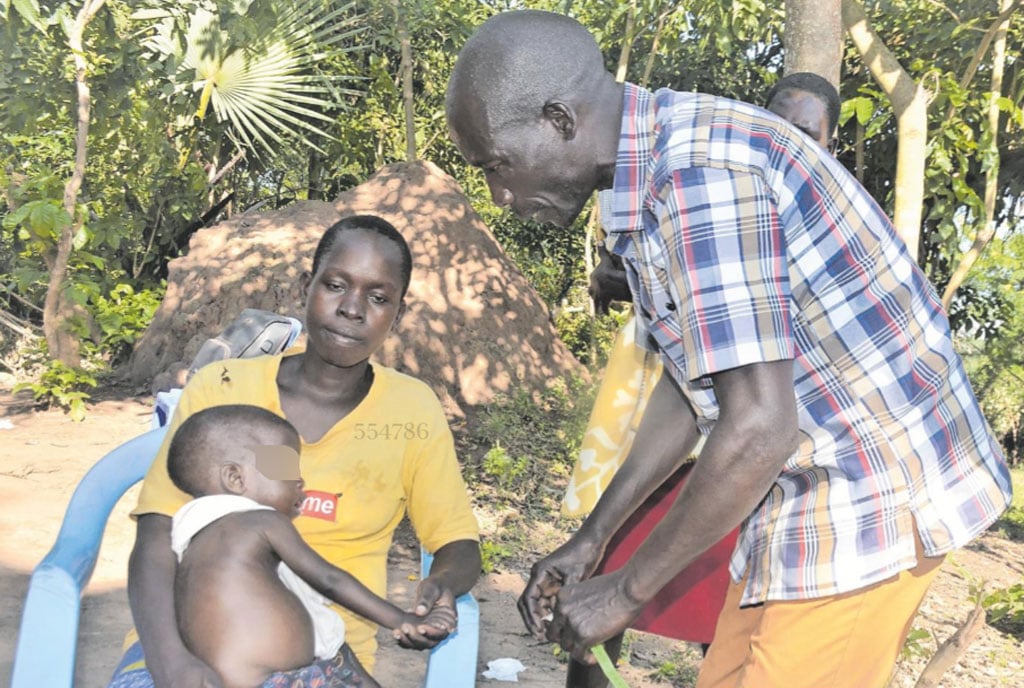
President Museveni speaks during the opening of the 3rd Session of the 5th Assembly of the East African Legislative Assembly in Entebbe on October 22, 2024. PHOTO/HANDOUT/PPU
Among the many powers granted to the President by the Constitution is the power to pardon convicted prisoners.
This is enshrined in Article 121 that also lays out a process to be followed when forgiving prisoners, reducing their sentence, or granting them respite.
Over the years, President Museveni has exercised these powers to forgive and set free hundreds.
“The President may, on the advice of the committee grant to any person convicted of an offence a pardon either free or subject to lawful conditions; grant to a person a respite, either indefinite or for a specified period, from the execution of punishment imposed on him or her for an offence; substitute a less severe form of punishment for a punishment imposed on a person for an offence; or remit the whole or part of a punishment imposed on a person or of a penalty or forfeiture otherwise due to government on account of any offence,” the Constitution states.
Who are the most recent beneficiaries of this act of benevolence?
The most recent beneficiaries include a group of 130 that included convicts who were serving time for crimes, including arson, theft, house break-in, causing grievous harm, possession of narcotics, obtaining money by false pretence, assault, manslaughter, and attempted murder, among others.
Earlier last month, President Museveni also pardoned former Permanent Secretary at the Ministry of Local Government, John Kashaka, who was handed a 10-year jail term in 2014 for causing government financial loss of Shs4.2 billion, meant to purchase bicycles for Local Council leaders.
At the beginning of this year, Mr Museveni set free former National Social Security Fund managing director, Chandi Jamwa, also accused of causing financial loss.
He had been sentenced to 12 years imprisonment.
Have the presidential pardons been without controversy?
Not really. The pardoning of men convicted of defilement, for instance, raised eyebrows across the country.
Human rights activists argued the nature of the crime was grave, yet some who were freed were serving light sentences like four and half years.
In 2021, Lydia Draru who was convicted for murdering Maj Gen James Kazini was released after serving 10 years of her 14-year sentence, for good conduct. The release was also not without controversy.
So, how is it done?
Article 121 of the Constitution establishes the Advisory Committee on the Prerogative of Mercy, which is chaired by the Attorney General (AG), who is also the legal advisor to the government.
The AG works with six other committee members who should be prominent citizens appointed by the President.
These should, however, not be either Members of Parliament (MPs) or the district council nor a member of the Uganda Law Society.
Mr Kiryowa Kiwanuka, the current AG, explained that the Committee sits at least once each quarter to review applications from those seeking pardon, which come in huge numbers.
“The inmates apply and we sit as a committee to make a decision and advise the President,” Mr Kiwanuka said.
These applications can also be originated by the relatives of the convict. While some write directly to the President, he said this is always returned to the Committee for perusal.
Walk us through what happens when an application is received…
The application is taken to the Uganda Prisons Service officials who submit the applicants, and reasons why they should be pardoned.
“We consider a number of things, age, the nature of the offence, the person’s record in prison, how long they have served, health status. Some of them have the victims of the crime saying it is okay, when they have reconciled,” Mr Kiryowa explained, adding that all offenders ranging from capital offences like treason to petty crimes are eligible for pardon.
To guide their decision, the committee also studies the details of the case and the judgment by court.
Mr Frank Baine, the spokesperson of the Uganda Prisons Service, said the institution also submits a list of eligible offenders based on guidelines given by the Committee.
Those who make it to this list include minor offenders who have finished three-quarters of their sentence, the terminally ill, suckling mothers, and elderly above 65.
All these should have served 50 percent of their sentence, show remorsefulness and have a track record of good discipline during their time.
“For us we submit a list of those in these categories. Sometimes the list has more than one thousand prisoners, but the discretion on who gets pardoned is with the Committee,” he disclosed.
Inmates on death row are also considered.
“Where a person is sentenced to death for an offence, a written report of the case from the trial judge or judges or person presiding over the court or tribunal, together with such other information derived from the record of the case or elsewhere as may be necessary, shall be submitted to the Advisory Committee on the Prerogative of Mercy,” the Constitution states.
Prisoners on remand do not qualify for presidential pardon, officials said, one can only apply after they have been convicted by court.








